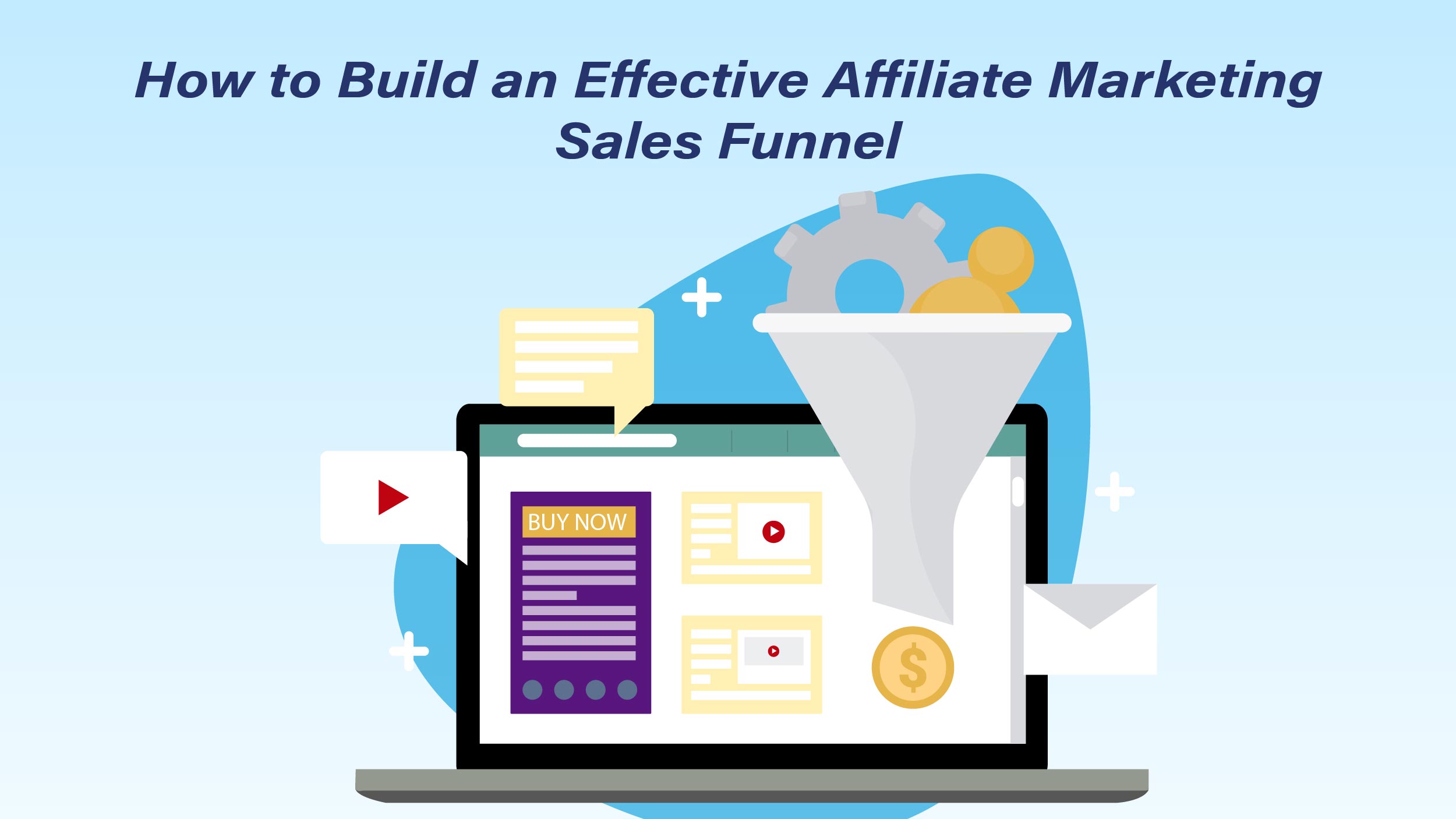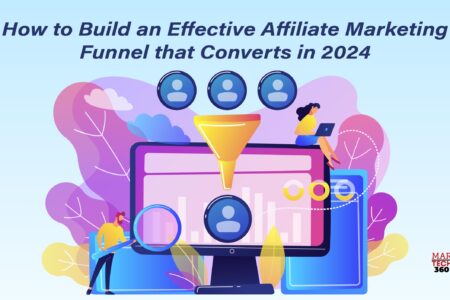Affiliate marketing funnels are hands-down the best way to earn some passive income. Now who wouldn’t want that, right? According to studies, in 2023, the U.S. expanded its affiliate marketing spending to $8.2 billion, contributing to a global market worth $12 billion. This amount represents nearly a threefold increase compared to the figures recorded a decade earlier.
The real question is; how do you build a powerful affiliate marketing business that maximizes your revenue? Fret not, this is exactly what we’ll be discussing in this blog.
What is Affiliate Marketing?
An affiliate marketing funnel is like a roadmap that turns potential customers into actual buyers in affiliate marketing. It’s a step-by-step process that guides people through different stages, leading them to make a purchase. The journey usually starts with creating awareness and interest, then moves on to nurturing leads and building desire for the promoted product or service.
The final step is getting people to take action, like making a purchase or signing up. A successful affiliate marketing funnel focuses on offering value, meeting customer needs, and using strategies such as email automation, retargeting campaigns, and reassurance to boost conversions. Understanding the basics of affiliate marketing helps marketers create content and offers that attract their target audience and guide them toward making a purchase.
Also Read: How to Optimize Your CMS Mobile App for Maximum Performance
The buyer’s journey consists of four crucial stages:
- Awareness: Prospects become aware of a problem or a need that they have.
- Consideration: They begin to explore and learn more about potential solutions to address their problem or need.
- Conversion: After evaluating their options, they decide to make a purchase.
- Loyalty: If their experience is positive, it leads to trust and satisfaction, potentially resulting in repeat purchases and loyalty toward the brand or product.
How to Build an Effective Affiliate Marketing Sales Funnel

- Create Awareness to Attract Leads
- Utilize SEO optimization to appear as a top result for relevant keywords on your blog or website.
- Leverage social media platforms like Facebook, Instagram, and YouTube to generate interest.
- Consider using paid media channels such as Google ads, Facebook ads, and Instagram ads to drive traffic to your blog or social media page.
- Develop Interest
- Create high-quality blog posts or YouTube video tutorials to demonstrate your expertise.
- Build a landing page with relevant information about the affiliate product and capture email addresses.
- Offer a lead magnet, such as a free e-book, webinar, or low-priced course, to entice potential customers to sign up for your email list.
- Help Make the Decision
- Maintain a social media presence to build relationships and trust with potential customers.
- Use automation-based email campaigns to nurture potential customers and create a sense of commitment.
- Continuously refine your targeting strategy and address any concerns or obstacles potential customers may have.
- Improve Your Funnel Over Time
- Optimize your funnel by making small tweaks to your offer, messaging, and targeting.
- Stay updated on the latest affiliate marketing trends and best practices to ensure the effectiveness of your campaigns.
3 Common Lead Magnet Types for Affiliate Marketing Funnels
A lead magnet is a free or low-cost offer used to generate interest and attract leads. Here are three common lead magnet types:
- Free E-Books: Offer a helpful resource related to your affiliate product to build trust and establish credibility.
- Low-Priced Courses: Provide a valuable course at a low cost to add value for potential customers and gather contact information.
- Free Webinars: Host a live or pre-recorded educational event to attract potential customers interested in learning more.
By offering valuable lead magnets, you can capture attention, nurture leads, and move them further down the affiliate marketing sales funnel. Remember to continuously optimize your funnel and stay informed about industry trends to ensure long-term success in affiliate marketing.
Who Can Become an Affiliate Marketer?
While certain programs are open to everyone, achieving success depends on the visibility of your blog, social media presence, or email outreach. Building an audience for your website is the initial step in becoming an affiliate marketer.
For those with an existing successful website, affiliate marketing offers an opportunity to monetize activities you are already engaged in. It’s possible to develop an entire business model around affiliate marketing.
Benefits of the Affiliate Marketing Funnel
Creating an affiliate marketing funnel offers several benefits, including:
- Reach More Prospects
- Generate more leads and convert them at a higher rate compared to simply adding links on blog posts or running ads.
- An affiliate marketing funnel is designed to nurture relationships over time, resulting in increased conversions.
- Greater Customer Loyalty
- Customers who go through an affiliate marketing funnel are more likely to become loyal to your brand.
- By providing valuable information and resources, you can build trust and loyalty, fostering long-term relationships.
- Build Your Own Buyers List
- Building your own buyers list ensures a pool of potential customers for your products or services.
- With a targeted list, you can focus your marketing efforts more effectively and increase the likelihood of conversions.
- Obtain Higher Affiliate Commissions
- A higher conversion rate and fewer refunds can lead to negotiating higher affiliate commissions.
- Affiliate marketing holds significant importance as a customer acquisition channel, with 20% of brand marketers considering it their most crucial channel. Additionally, 54% of marketers rank affiliate marketing among their top three channels for customer acquisition.
- While not all merchants may be open to negotiation, it is worth inquiring about the possibility.
In a Nutshell
An affiliate marketing funnel is a strategic framework that directs potential customers through the purchasing journey, encompassing stages like awareness, interest, decision, and action. Employing strategies such as email marketing, content creation, and social media promotion, the funnel aims to convert leads into paying customers. Implementing such a targeted affiliate marketing funnel is crucial in capturing leads, nurturing them, and ultimately boosting sales and commissions.

